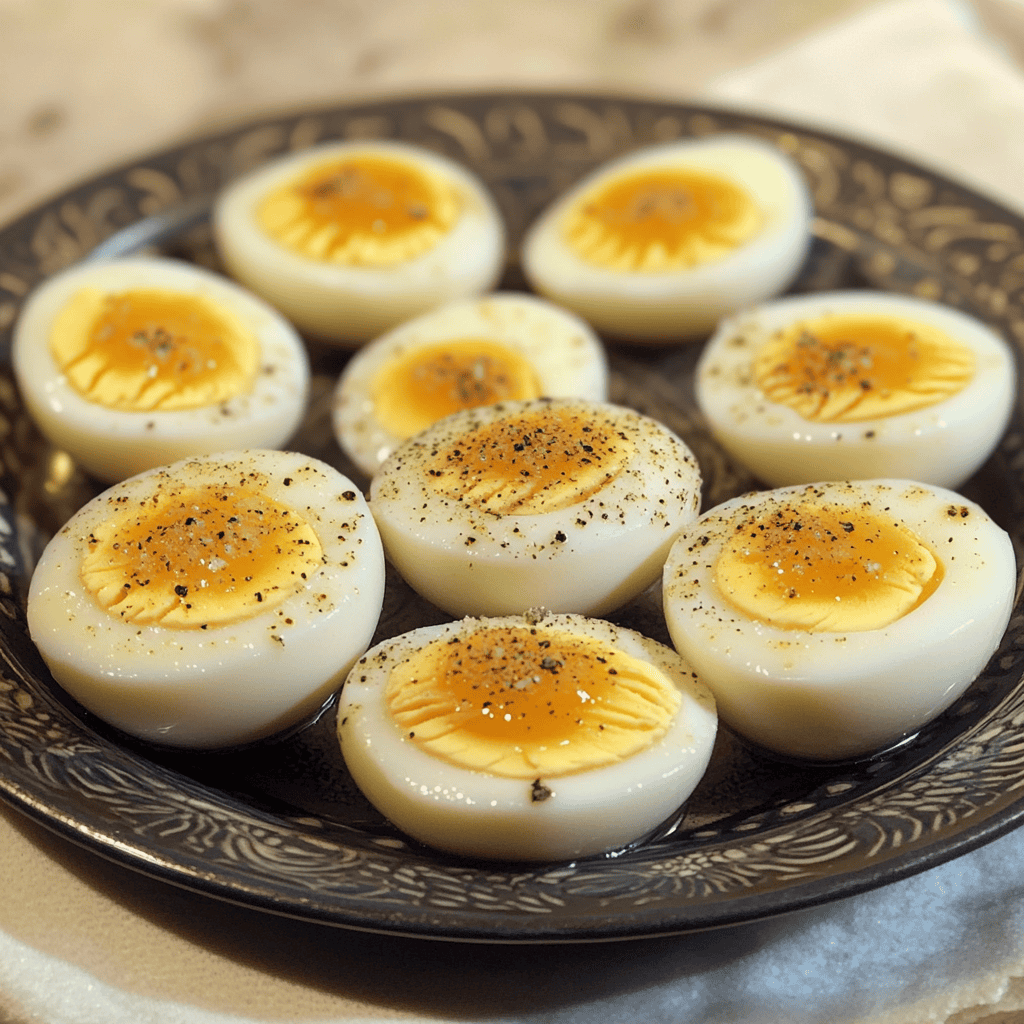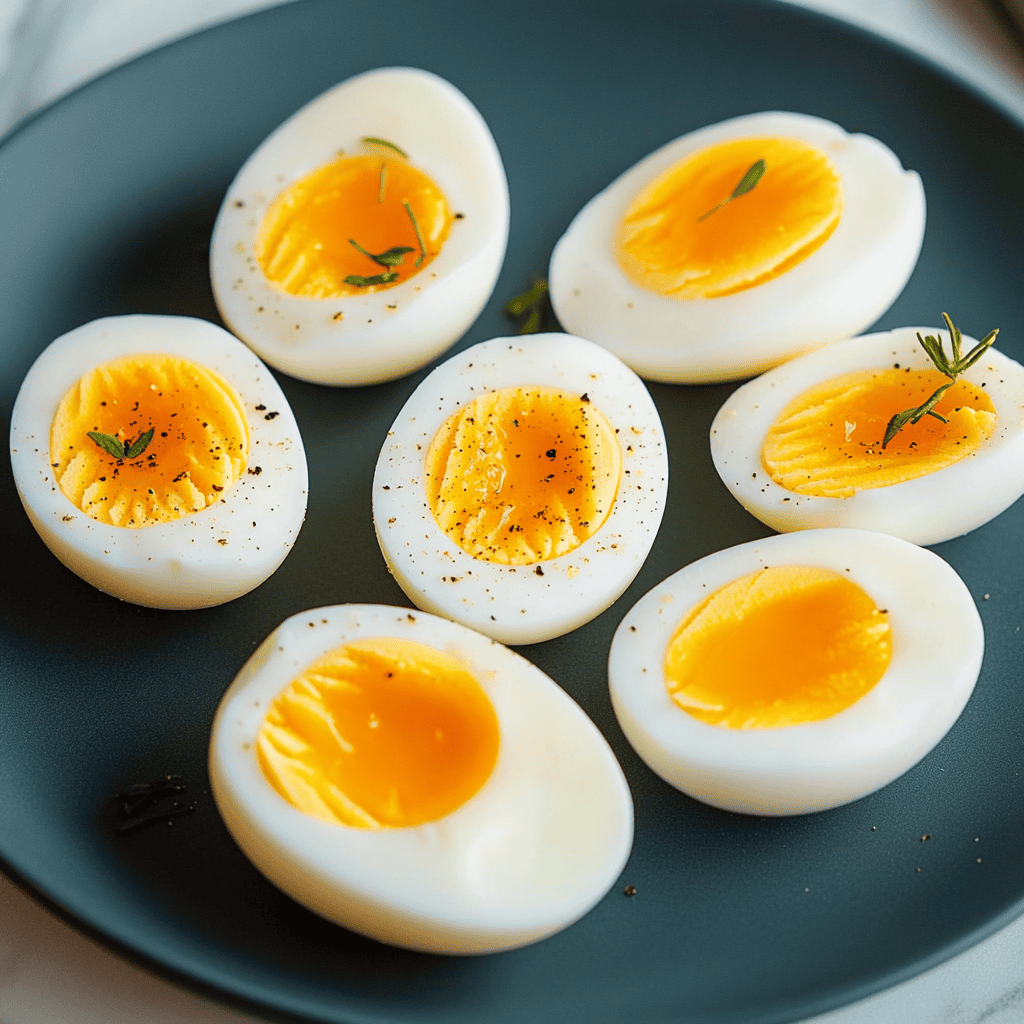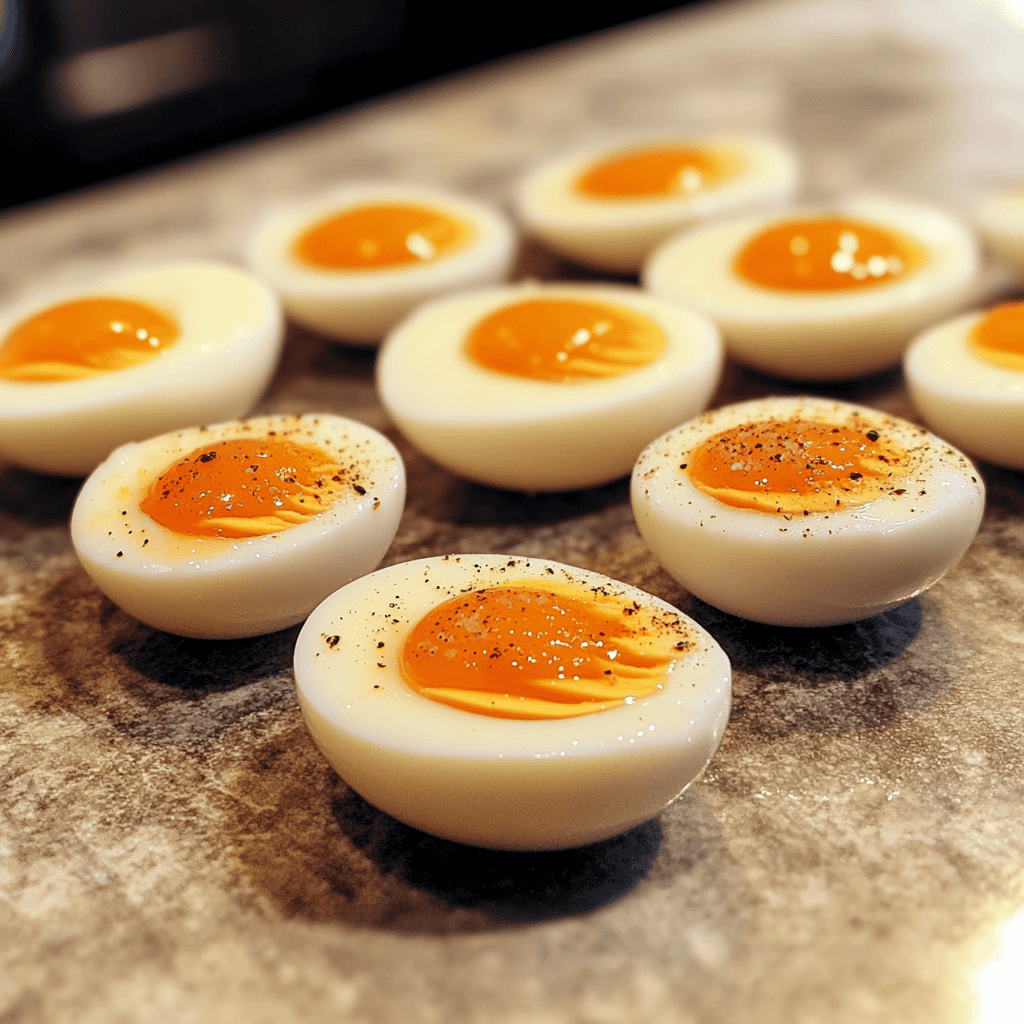Quick Overview
If you have ever wondered how to steam hard boiled eggs perfectly, you are not alone. Steaming is a simple and efficient method that yields deliciously tender whites and creamy yolks. Unlike boiling, which can lead to overcooked or green-tinged yolks, steaming offers more control over the cooking process. In this article, we will guide you through the easy steps on how to steam hard boiled eggs that will leave you with satisfying results every time.
Ingredient Breakdown
To achieve the best steamed hard boiled eggs, you’ll need just a few basic ingredients.
H4 Eggs
You will need large eggs for this recipe. Freshness is key; try to use eggs that are not too close to their expiration date for best results.
H4 Water
Water is essential for steaming. You’ll need about one cup of water to create enough steam in your pot. The amount can vary depending on your steamer or pot size.
H4 Ice (Optional)
For cooling the eggs after steaming, prepare an ice bath using cold water and ice cubes. This helps stop the cooking process and makes peeling easier.
Step By Step Recipe: How to Steam Hard Boiled Eggs
Follow these detailed instructions on how to steam hard boiled eggs for perfect results every time.
H4 Prepare Your Steamer
Begin by filling a pot with about one cup of water. Place a steamer basket or an insert in the pot so that it sits above the water level without touching it. Bring the water to a rolling boil over medium-high heat before adding the eggs.
H4 Add the Eggs
Once the water reaches a boil, carefully place your large eggs into the steamer basket. Ensure they are arranged in a single layer for even cooking. Cover the pot with a lid tightly to keep in steam.
H4 Steam the Eggs
Allow the eggs to steam for 12-15 minutes depending on your desired doneness level. For soft-boiled textures, aim for 12 minutes; for firm yolks, go closer to 15 minutes. Keep an eye on your timer!
H4 Transfer to Ice Bath
After steaming is complete, immediately transfer the eggs into an ice bath prepared earlier. This stops further cooking and helps cool them down quickly. Let them sit for about 5-10 minutes for easy peeling.
H4 Peel and Enjoy
Gently tap each egg on a hard surface and roll it lightly until cracks form all around. Start peeling from the wider end where there’s usually an air pocket; this makes it easier! Enjoy your perfectly steamed hard boiled eggs as desired.

Serving and Storing Tips
These tips will help you serve and store your steamed hard boiled eggs effectively.
H4 Serving Suggestions
Serve your steamed hard boiled eggs warm or chilled as part of salads or breakfast plates. They pair wonderfully with salt or hot sauce for added flavor!
H4 Storing Leftovers
Store leftover steamed hard boiled eggs in their shells in an airtight container in the refrigerator. They can be kept fresh for up to one week; unpeeled helps retain moisture.
H4 Freezing Options
If you want to store them longer, consider freezing peeled egg whites separately from yolks since they have different textures when thawed. Use within three months for optimal quality.
By following this guide on how to steam hard boiled eggs, you’ll enjoy delicious results every time! Happy cooking!
Mistakes to avoid
One common mistake when learning how to steam hard boiled eggs is not using enough water in the steaming pot. Insufficient water can lead to uneven cooking or even burnt eggs. Always ensure you have enough water to create steam for the entire cooking duration.
Another mistake is overcrowding the steamer basket. When too many eggs are crammed together, they may not cook evenly. It’s best to steam a smaller batch to give each egg enough space for proper heat circulation.
Not timing the steaming process correctly can also ruin your eggs. If you don’t keep track of the time, the yolks could end up overcooked or undercooked. Use a reliable timer and follow recommended steaming times closely.
Finally, failing to cool the eggs immediately after steaming can lead to rubbery textures. Placing them in an ice bath right after cooking stops the cooking process and helps achieve that perfect hard-boiled consistency.

Tips and tricks
When you want to master how to steam hard boiled eggs, consider using a pot with a tight-fitting lid. This ensures that steam circulates properly, allowing for even cooking throughout the eggs. A lid that seals well keeps the temperature consistent, which is crucial for achieving that desired firmness without overcooking.
Another vital tip is to start with cold eggs straight from the refrigerator. Cold eggs tend to cook more evenly compared to room-temperature ones since they reduce the chances of cracking due to temperature shock when they hit the hot steam.
Consider using a steamer basket instead of directly placing eggs in boiling water. A steamer basket elevates the eggs above boiling water, allowing them to cook gently in steam rather than harsh boiling water, resulting in a more tender texture.
Lastly, experiment with different times depending on how you like your yolks. Generally, steaming for 12-14 minutes yields firm yolks, while 9-11 minutes results in slightly softer centers. Adjusting your time will help you find your perfect hard-boiled egg preference.
Suggestions for How to Steam Hard Boiled Eggs
For optimal results when learning how to steam hard boiled eggs, use fresh eggs whenever possible. Freshness not only affects taste but also helps with peeling later on; fresher eggs typically peel easier than older ones.
Make sure to place a trivet or other heat-proof surface inside your pot before adding water and placing your steamer basket on top. This method keeps your eggs out of direct contact with water while ensuring they receive adequate steam during cooking.
Consider seasoning your water lightly with salt or vinegar. Some people believe this can help enhance flavor and make peeling easier once cooked, although this practice varies based on personal preference.
After removing your steamed eggs from heat, always place them in an ice bath immediately. This quick change in temperature not only prevents overcooking but also allows for easier peeling due to rapid cooling shrinking the egg from its shell slightly.

FAQs
How long should I steam hard boiled eggs?
The ideal steaming time varies based on how you prefer your yolks. For fully cooked yolks, aim for around 12-14 minutes of steaming time. For slightly softer centers, reduce this time to 9-11 minutes. Always adjust according to your taste preferences.
Can I use frozen eggs for steaming?
It’s not recommended to use frozen eggs when learning how to steam hard boiled eggs because freezing can alter their texture significantly. Fresh or refrigerated eggs provide better results as they cook more evenly and yield a superior texture upon completion.
What equipment do I need for steaming?
To effectively steam hard boiled eggs, you’ll need a large pot with a lid, a steamer basket or insert that fits inside the pot, and ice for an ice bath afterward. Ensure that these tools are readily available before starting so that everything goes smoothly during preparation.
Is it necessary to use an ice bath after steaming?
Yes! Placing steamed hard boiled eggs into an ice bath immediately halts further cooking and helps improve their texture by preventing rubberiness. The rapid cooling also makes peeling much easier; this step shouldn’t be overlooked.
Why do my steamed hard boiled eggs crack?
Eggs may crack if they’re too cold when placed into hot steam or boiling water due to temperature shock. To prevent cracking while learning how to steam hard boiled eggs, allow them some time at room temperature before cooking or use a gentle approach when adding them into hot environments.
How can I tell if my steamed hard boiled eggs are done?
The best way is through timing based on personal preference regarding yolk consistency; however, you can also carefully crack open one egg at the end of your desired cooking time for visual confirmation before deciding whether additional time is needed.
Summary
In summary, mastering how to steam hard boiled eggs involves avoiding common mistakes such as inadequate water levels and overcrowding baskets while utilizing helpful tips like starting with cold fresh eggs and timing accurately. Remembering these key points will help you create perfectly steamed hard-boiled eggs every time while ensuring easy peeling and great taste.
